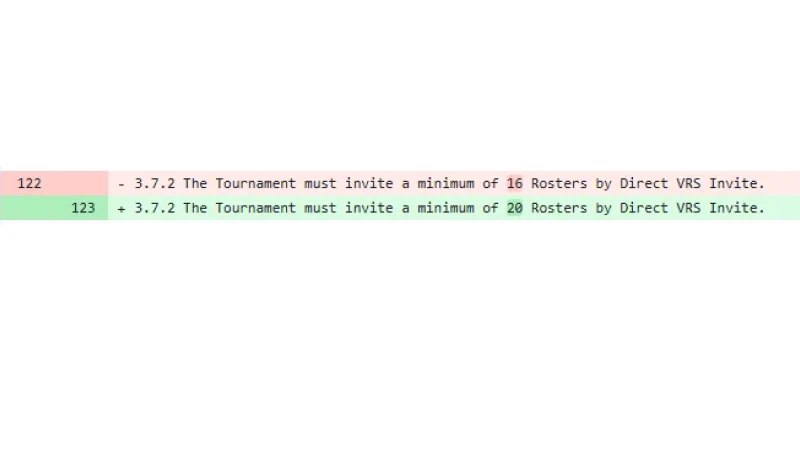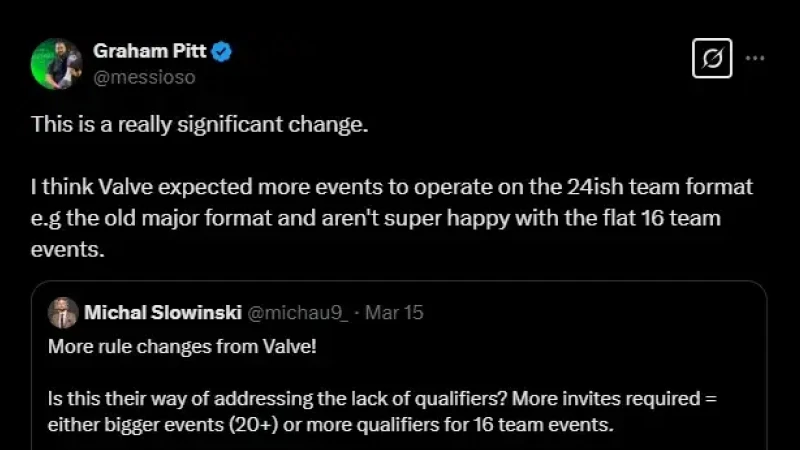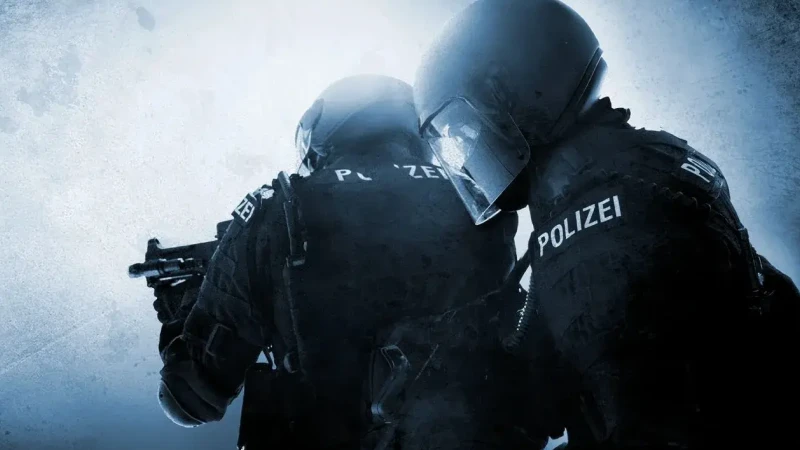After the changes to the CS2 tournament requirements in February, Valve has once again adjusted the CS:GO rules. The invitation requirements for T1 and T2 events have been relaxed from 16 teams to 20 teams. Of course, there are also certain restrictions on the ranking of wildcard invitation teams. Wildcard teams cannot be ranked higher than 12th. This adjustment allows more outstanding teams to enter the world stage and also increases the viewing value of the event.
This is an official adjustment made by Valve for the tournament. To encourage new teams and motivate old teams, Valve has been constantly adjusting the rules to ensure that every team can compete fairly and impartially.
Revamped Team Invitation Structure for T1 & T2 Events
Valve has adjusted the wildcard invitation process for T1 and T2 tournaments to allow some competitive teams to participate, but also put strict restrictions on these teams.

Alt=cs2 tournament requirements changes
More Invitations for T1 Events
The number of wildcard invitation teams has been changed in T1 Events, from 16 to 20. This rule is more favorable to emerging teams. Valve had intended to increase the number of wildcard invitation teams before, but it was not until now that the adjustment was made after mature consideration. This rule change allows more talented CSGO professional players to show themselves and also makes the tournament more competitive and attractive.
Revised T2 Invitation Rules
After adjusting the number of wildcard invitation teams, there are stricter restrictions on the number of additional teams. Previously, organizers could invite the top 8 teams in the world, but now the T2 events can only invite teams ranked below 12th in the world. This prevents the event from ending prematurely and lacking in viewing quality.
Such rule adjustments are intended to provide opportunities for emerging teams, rather than forcing them to be directly suppressed by mature teams and have no chance to perform.
Such comprehensive adjustments have well-balanced the ecosystem of the game, giving emerging teams opportunities while allowing mature teams to directly participate in major competitions.

New Wildcard Eligibility Rules
As mentioned above, Valve has set restrictions on the ranking of wildcard teams. Only teams ranked outside the top 12 in the Valve Regional Ranking (VRS) can enter the wildcard team invitation list. At least one of the following additional criteria must be met. Here are some specific restrictions:
1. At least three of its players have been members of the top 12 of the VRS invitation list in the past six months.
2. In the past six months, the team has won first or second place in the previous T2, the same level or lower level event.
Such rule adjustments are mainly for fair competition and to prevent some players who have achieved glory and are now neglecting training from entering the competition. Recent competition achievements should be focused on.

Changes to Tournament Seeding and Announcement Timelines
Valve has also adjusted tournament seeding and announcement dates.
Seeding Adjustment:
Previously, seeding was based entirely on VRS rankings at the time of invitation.
Now, organizers only need to use the VRS version specified in the event additional information announcement.
Updated Event Announcement Deadline:
Because tournament events involve many locations and teams and are super events around the world, many things need to be confirmed in advance. But the previous 24-month announcement was too long, which was not friendly to the enthusiasm and endurance of players and spectators. In 2027 and beyond, tournament announcements must be released at least 22 months in advance.
The reason behind the adjustment of the release time is the simplification of the planning process, which gives organizers more time to prepare and players can see the schedule earlier.
Community Reactions and Industry Impact
The CS:GO community has sparked discussions about this rule adjustment. Most of the reactions are positive. They believe that the expanded first-level invitation pool represents fair competition. Strict rules ensure that the teams that enter the competition have advanced through their efforts.
Of course, there are also a few concerns and criticisms. Some people worry that stricter wildcard qualification standards may reduce the opportunities for emerging teams that want to enter top events. Big-name players may reduce their participation in second-level events.
Despite this, the adjustments made by Valve this time still maximize the fairness of the competition.
Final Thoughts
Valve ensures that teams are judged based on skill and recent performance rather than historical status.
With these rules in effect, Valve can ensure that wildcard invitation teams are qualified for the competition because of their skill and recent performance. The CS:GO community will closely watch how teams adapt to the new process.
Regardless, the competition in CS:GO esports will only become more and more fierce, and there will be progress only if there is competition. Every team must prove themselves on the battlefield.
For more news about CSGO event dynamics, player dynamics, and official news, check out Gocsgo, and get CS:GO news and case opening offers.
For more CS2 information, please follow Gocsgo and Gocsgo blog.

